Rick's Note:
Are you ready for a serious adventure? How about
the Panama Canal? Marla and I
invite you to join
us on a 14 day, 5,000 mile ocean
adventure in the latter half of January
2012.
The Coral Princess will depart from Los Angeles on
January 17th, 2012. Six days later we
reach beautiful Costa Rica, one of Marla's favorite
destinations in the world.
Two days after that we reach the
magnificent Panama Canal.
The ship will dedicate two days to the Panama Canal
experience.
I can't wait
to see Lake Gatun, the man-made lake which forms the center of Canal.
Then it is on to Cartagena, Colombia,
and to the scuba-paradise island of Aruba off the coast of
Venezuela. From there we head back to the USA at Fort
Lauderdale, Florida. Imagine being at sea for 5,000 miles!
This is not a
typical SSQQ Travel Group Cruise. Marla
and I have been hired as the official Ballroom Instructors
onboard the Coral Princess.
Considering we will be at sea for 8 of the 14 days, we will
be teaching a lot of dance workshops. In addition, you
can assume that dancing will play a major role during the
evening on this trip.
A trip to the Panama Canal trip has
been on the dream list for many SSQQ people for some now and
that includes Marla and myself.
Then out of nowhere, this opportunity came up.
Marla told me that several people
mentioned the Panama
Canal when polled earlier in the year.
We realize this is short notice, but we thought there might
be some people that might like to join us. Marla will be
more than happy to book you onto the trip.
If you have some free time in January, please consider
climbing on board for what promises to be an exciting
adventure!
|
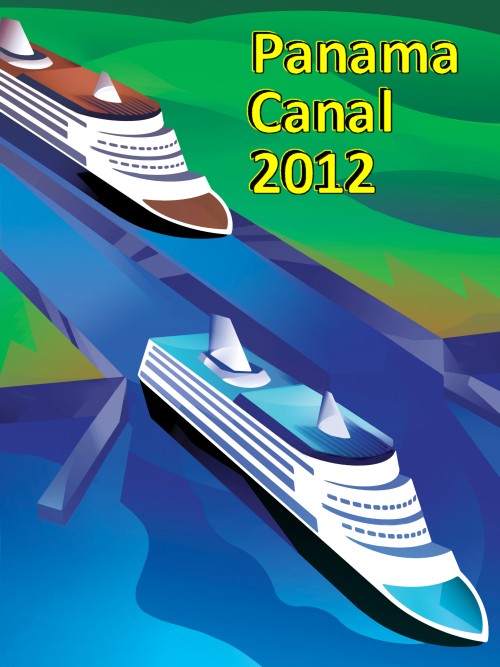 |
|
|
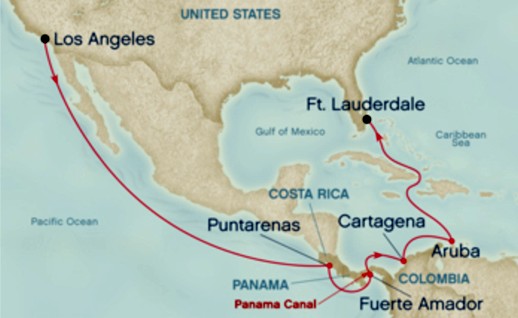 |
Panama Canal
Itinerary
|
|
| |
Port |
Arrival |
Departure |
|
01 |
Los Angeles,
California
Depart Tuesday, January 17, 2012, at 5:00 PM |
|
02 |
At Sea |
|
|
|
03 |
At Sea |
|
|
|
04 |
At Sea |
|
|
|
05 |
At Sea |
|
|
|
06 |
At Sea |
|
|
|
07 |
Puntarenas,
Costa Rica |
7:00 AM |
7:00 PM |
|
08 |
At Sea |
|
|
|
09 |
Fuerte
Amador, Panama (for Panama City) |
8:00 AM |
6:00 PM |
|
10 |
Panama
Canal, Panama |
5:00 AM |
4:30 PM |
|
11 |
Cartagena,
Colombia |
8:00 AM |
2:00 PM |
|
12 |
Aruba |
1:00 PM |
7:00 PM |
|
13 |
At Sea |
|
|
|
14 |
At Sea |
|
|
|
15 |
Ft.
Lauderdale, Florida
Return Tuesday, January 31, 2012 at 7:00 AM |
|
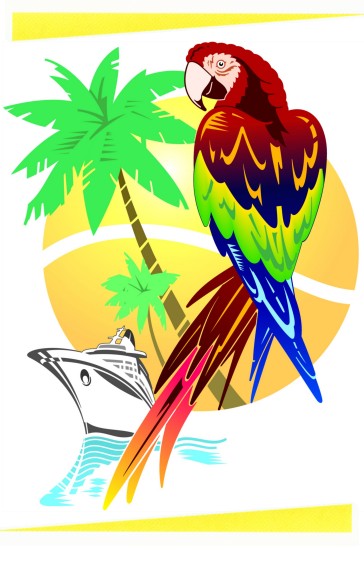 |
|
|
|
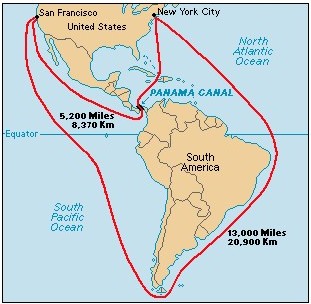 |
About the
Panama Canal
Cruise
The
Panama Canal
is one of the world's great engineering masterpieces.
Considering the difficulty involved in construction and the
international
importance of this vital waterway, many consider
the Panama Canal to be the "Eighth
Wonder of the World".
And what
a Wonder it is! Look what the Panama Canal
accomplished. Prior to its completion,
the
added distance
for ships sailing from New
York to San Francisco around Cape Horn
at the lower tip of South America versus
through the Panama Canal was
8,000 miles!!
Some people have
compared the task of building the canal to building the
Pyramids. I have
no idea the time it took to construct the Great
Pyramids of Egypt, the most famous "Ancient" Wonder
of the World, but the scope of both projects is
mind-numbing.
|
Like the
monumental scale of the Egyptian Pyramids, the
building of the Panama Canal was a massive project
that involved thousands of men, tremendous hardship,
and constant danger. Many men died building
the Canal either from accident or disease.
Yellow fever and malaria was a huge problem. Men
literally had to
risk their lives to participate.
Given
the enormity of the accomplishment, it is not
surprising that travelers across the globe aspire to
one day witness this marvel of engineering up close.
People have been lining up
to witness this amazing accomplishment since the moment
construction began.
The result of historic
efforts, a Panama Canal cruise is truly a
once-in-a-lifetime adventure, best experienced by
sailing through the waterway
on an unforgettable
cruise. Marla and I hope you will
join us.
|
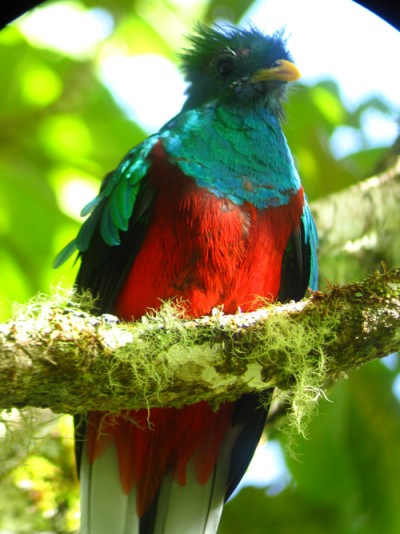 |
Puntarenas, Costa
Rica
|
Two days before the
cruise ship reaches Panama, we have an entire day devoted to
exploring the lush jungles of Costa Rica.
To Spanish explorers, the rumors of
gold and vast riches could only mean that this section of
Central America was the 'costa rica' - the "Rich Coast."
Costa Rica has been hailed as the
Switzerland of the Americas for
its reputation of peace, political stability, and
prosperity. Although this slogan smacks of an
overzealous marketing strategy along the lines of
"Greenland", there is no doubt that Costa Rica is the
shining light of Central America. It is one of the few
countries in this area not plagued by drugs and excessive
violence.
Consequently Costa Rica has become a
favorite location for Americans to retire. The country
is safe, the economics are favorable and the beauty of the
land is unquestioned.
Costa Rica
occupies a unique geographic position, lying between two oceans and two
continents. The jungles of Costa Rica are
something to behold. On both coasts, tropical rainforests rise to the
mountains of the interior, many of which soar over 13,000
feet above sea level.
In the west, a seemingly endless
succession of brown-sand beaches forms the nation's Pacific
coast.
Puntarenas is your gateway to Costa Rica's wonders -
and to its capital city of San Jose.
|
Things to do and
see while at port in Puntarenas:
·
Poas Volcano
The Poás Volcano, Costa Rica's natural
wonder, sits at 8,500 feet above sea level. It is one of the
few active craters in the Americas, and is famed for its
geyser-like eruptions of gas and ash.
·
Rainforest
Aerial Tram
Costa Rica's incredible Rainforest
Aerial Tram offers an intimate ride above the treetops and
past awe-inspiring waterfalls while a knowledgeable
naturalist guide points out highlights along the way.
|
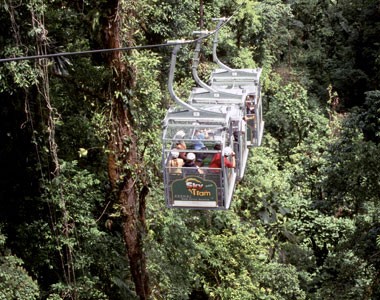 |
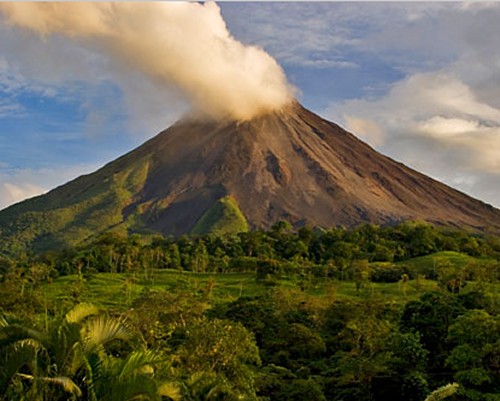 |
·
Costa Rica
Rainforest
From the misty treetops of the
Monteverde Cloud Forest to the brilliantly-colored scarlet
macaws who call Carara National Park their home, Costa
Rica's lush rainforests are full of intrigue.
·
Arenal
Volcano/Thermal Springs
Set near glorious Lake Arenal, this
incredible volcano is one of the ten most active volcanoes
in the world. Here is a picture of
its eruption in 1968. Arenal is also famous for its natural mineral hot
springs and exuberant vegetation.
·
San Jose &
National Theater
Costa Rica's vibrant capital city is
home to the Gold Museum, the spectacular Metropolitan
Cathedra, the historic National Museum (the scene of
fighting during the 1948 civil war), and the National
Theater, considered to the country's most beautiful
building.
|
|
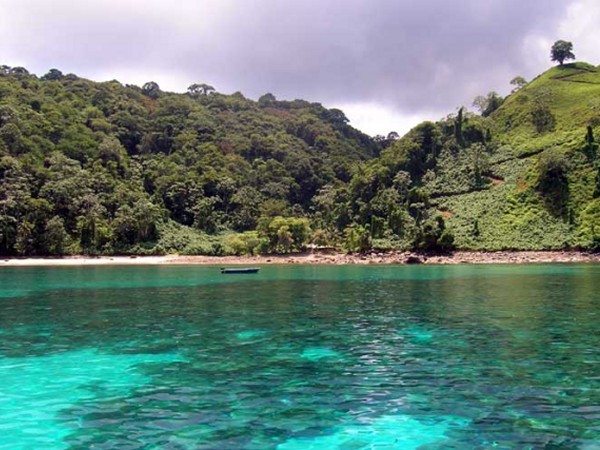 |
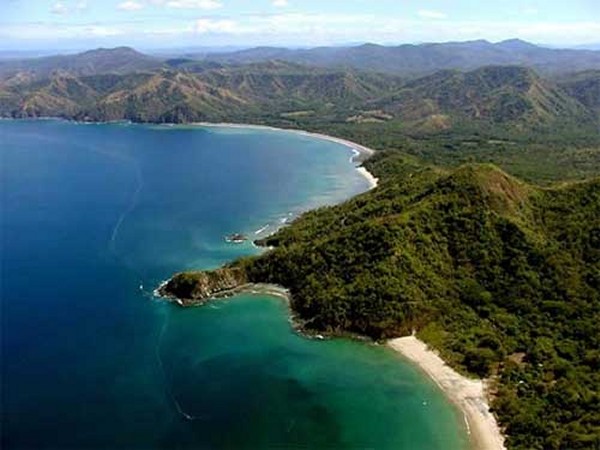 |
| |
|
|
|
|
2 Days in Panama
|
Day One:
Fuerte Amador, Panama City
|
|
The
Panama Canal is an engineering feat to behold.
Our itinerary
allows us a 2-Day Panama Canal experience. This is the best
way to see the Panama Canal. We
have one day to explore and one day to actually
transit the Canal. This extra time will give
us the opportunity to understand
why the building of the Canal was
such a
monumental achievement.
On the first day, the ship
docks just off the shore of Panama City.
Fuerte Amador, situated at the Pacific
entrance to the Panama Canal, is a man-made peninsula
extending out into the Pacific Ocean.
You will have an entire day to go
see whatever you wish to see in the Panama Canal.
Here is your opportunity to tour the capital
of Panama City, ride the fabled Panama Canal Railway, take
an aerial tram through the rainforest, go monkey watching,
visit an Indian village, or take a
fishing expedition in the fabled Lake Gatun, once
the largest artificial lake in the world.
|
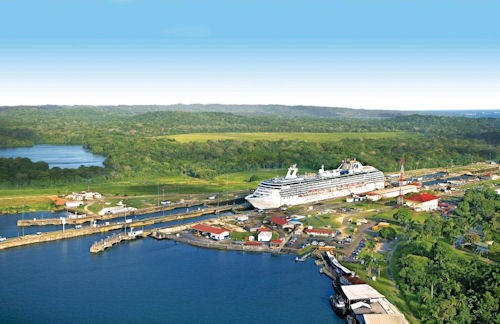 |
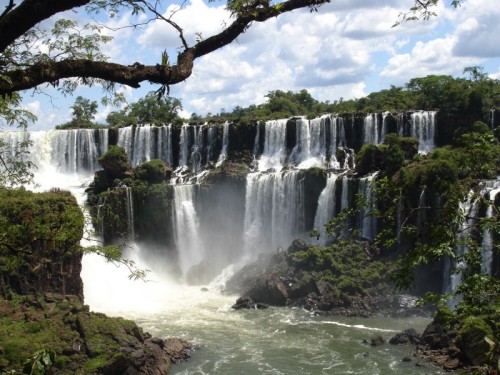 |
Panama is a very
interesting country. The narrow isthmus separating the
Atlantic from the Pacific Ocean had a turbulent
history long before Teddy Roosevelt
initiated the project to build the
transcontinental canal at
the turn of 1900.
Spanish conquistadors hauled Incan gold through the dense
rainforest to ports on the Atlantic. English freebooters
sought to ransack those ports and attack the treasure ships
that sailed from Portobelo. And the
49ers braved mosquitoes and
yellow fever to get to the California gold fields.
Panama is a pretty
country, combining mountains and jungles
into a wild tropical tableau.
While the
Panama Canal remains one of the great American engineering
feats of the 20th century, visitors to Panama will discover
a whole range of scenic wonders.
Hike into the dense
rainforest, home to over 1,000 species of animals. Or pay a
visit to an Embera Indian village in the heart of Chagres
National Park. The list of possibilities
is almost endless. Although whatever
you choose will be wonderful, you will be
consumed with frustration that there is more
to see than you have time for.
|
|
Fuerte
Amador, Panama... next to Panama City
Fuerte Amador, situated at the Pacific
entrance to the Panama Canal, is a man-made peninsula
extending out into the Pacific Ocean.
This is where all the cruise ships anchor just off the shore
of Panama on the Pacific side.
The one-mile causeway was created by connecting four small
islands with rocks excavated from the Panama Canal. There
are several shops, restaurants, and other specialty stores
centered around a large marina that serves as a tender dock.
The causeway affords a
panoramic view of Panama City's impressive skyline.
·
Pan Viejo -
Panama City
The original devastated city
is still in ruins, and has become known as Panama
Viejo, or "Old Panama." Take in the sights, sounds,
and shopping at this historic location.
·
Casco Viejo -
Panama City
Casco Viejo displays a mix of
architectural styles, which reflect the cultural diversity
of the country. Caribbean, Art Deco, French and Colonial
architecture mix in this historic area.
|
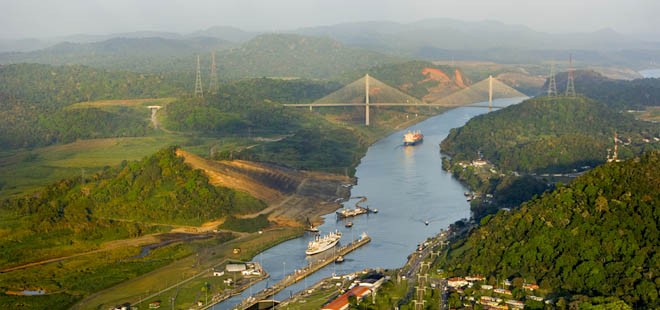 |
·
Panama Canal
Railway
Ride the world's first
transcontinental railway. Luxurious passenger accommodations
afford travelers a one-of-a-kind opportunity to experience
Panama's rainforest setting along the historic route
originally built in 1850 during the heyday of the California
gold rush. The route across the isthmus follows
the east bank of the canal and affords an intimate view of
the waterway as well.
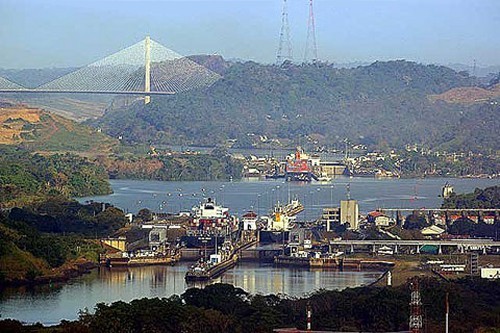 |
·
The Miraflores Canal Locks
The Miraflores Locks
(pictured) are part of the
engineering marvel that makes the Panama Canal
so amazing. The Miraflores Locks Observation
Center provides a close view of how the
locks function.
The
Miraflores Locks transfer 26 million gallons of
water in under 7 minutes at the
Pacific end of the Canal.
You have to see it to believe it... or maybe we
should say "understand it".
·
Cruise Gatun
Lake
A jungle boat excursion through the
dense rainforest highlights the abundance of exotic wildlife
and breathtaking scenery found along this vital waterway, a
key component of the Panama Canal's intricate system
|
·
Aerial Tram
and Soberania
The Gamboa Resort lies in the heart of
Panama's 55,000-acre Soberania National Park. Board your
air-conditioned aerial tram for the 20-minute ascent through
the rainforest canopy.
Nestled within the vast Soberania
National Park, an aerial tram soars over the Gamboa
Rainforest, a jungle paradise and complex ecological system
that showcases some of the most spectacular vegetation and
wildlife in the world. The canopy
is something to behold from above.
This is how
you can get your view of the fabulous Panama
Panorama!
|
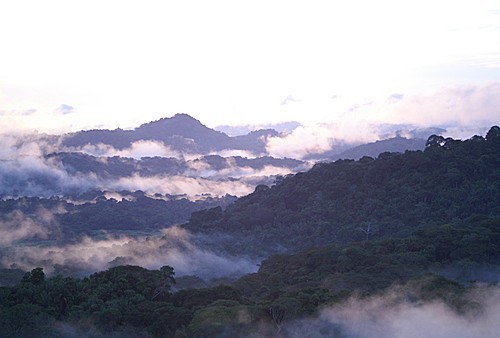 |
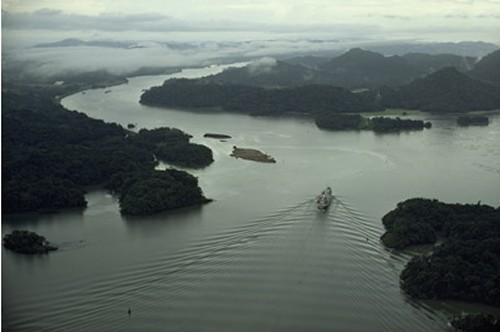 |
·
Gatun Locks
On the Atlantic side, the three
chambers of the Gatun Locks raise ships 85
feet above sea level. Witness the workings of the Panama
Canal at Gatun Locks Observation Area. Take in the
engineering feat required to move ships over a continental
divide that separates two oceans.
·
Visit Gatun
Lake
Pictured here,
Gatun Lake is located amidst 50,000 acres of pristine
rainforest. Gatun Lake is a natural gem hosts an incredible
variety of mammals, birds, reptiles and amphibians.
(Hint from Rick:
You will see this lake when we will pass through on our
cruise ship the following day. However I don't imagine
the cruise ship will take you into all the many inlets and
through the islands).
|
| |
Day Two:
The Trip Through
Panama Canal
|
 |
You won't leave the
ship today as we pass through the Canal, but nonetheless
this moment will surely be the highlight of your entire
trip. You can enjoy the beauty of the tropical jungle,
the mountains that surround Lake Gatun, and the complexity
of the locks right from the comfort of your cruise ship.
Cross your fingers and hope it is a sunny day, but don't
worry... thanks to an invention known as the umbrella, you
won't miss a thing even if it rains. Nothing can spoil
a day like this!
|
|
|
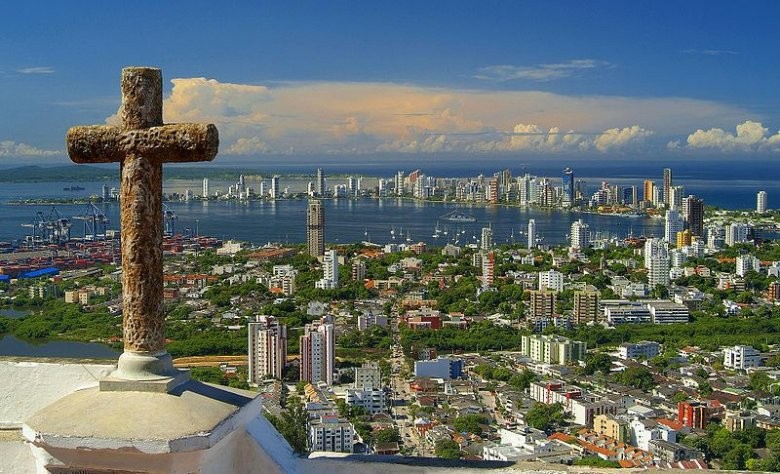 |
Cartagena, Colombia
|
Cartagena is the
city where the Spanish founded their first settlement in
South America. Due to its proximity to Panama,
Cartagena would eventually become
the transit port for much the
wealth Spain derived from South America.
Throughout Colombia, the Spanish Empire's influence in the
New World is self-evident. Its fortress walls, quaint narrow
streets, and balconied houses are all vivid reminders of
Spain's original hold on Cartagena.
This is the land of El Dorado and
flamboyant adventurers in search of the ever-elusive gold.
|
Cartagena's well-constructed
fortifications defended its borders against seafaring
pirates whose attacks lasted for more than 200 years.
Today this modern and bustling city, seaport, and commercial
center still boasts much of its original colonial
architecture. Your journey here will provide you with a
significant link to the region's grand past.
The famous "Old City" is comprised of 12 square
blocks filled with attractions, boutiques and restaurants.
|
·
Old City
The walled historic center of Cartagena is a
UNESCO World Heritage site. Its winding streets lined with Spanish
Colonial architecture display colorfully painted buildings, local
bars and restaurants.
·
Las Murallas
Considered by many the most impressive city
walls in the world, Las Murallas began construction after an attack
by Francis Drake at the end of the 16th century.
·
Castillo de San Felipe
de Barajas
Majestically standing guard on a hillside
overlooking the city and harbor is Castillo de San Felipe, a
fortress built by the Spanish for protection against pirates while
shipping gold out to Europe.
|
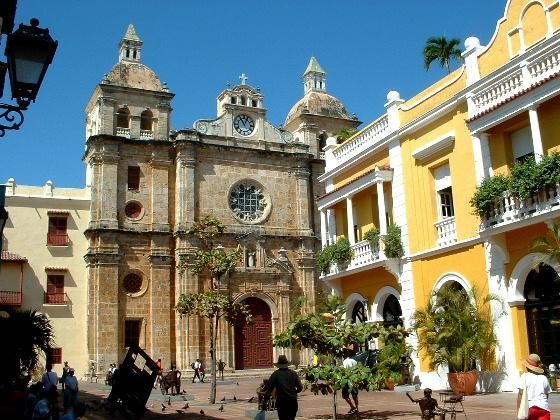 |
·
Palacio de la
Inquisicion
Behind a charming, colonial facade,
the palace museum displays instruments of torture from the
Spanish Inquisition, pre-Columbian, colonial and
independence-era art.
·
Cartagena's
Cathedral
The cathedral is one of the largest in
a series of fortresses with a massive exterior and simple
interior. Partially demolished by Sir Francis Drake's
cannons, it was completed in 1602.
·
Museo de Oro y
Arqueloguía
Gold and pottery collections of the
Tayrona, Calima and Sinú people are on display, as well as
panel exhibitions about the Atlantic coast cultures.
·
Las Bóvedas
Inside the Old City are Las Bóvedas,
dungeons initially built for military purposes, now home to
boutiques and tourist shops.
·
La Popa
Monastery
The 400-year-old monastery, built on
the foundations of a razed Indian temple, sits on a 500-ft
hill and affords a panoramic view of the city. Inside note a
statue of the Virgin of Candelaria, credited with delivering
the city from the ravages of disease and pirates.
|
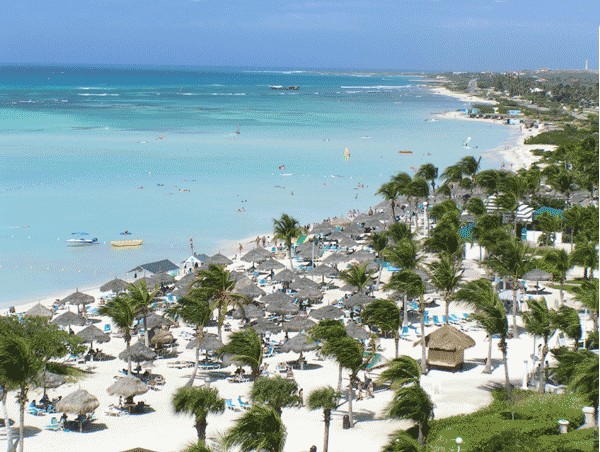 |
Aruba
Aruba is
a well-known vacation island located a mere 17 miles
off the coast of Venezuela. Despite its
proximity to this large nation, Aruba is most
closely linked with the Netherlands 5,000 miles away
in Europe.
Aruba
gained its independence in
1986,
but seems
to maintain ties with the Dutch through the Kingdom
of the Netherlands.
Aruba is
part of the ABC islands. Bonaire and Curacao
are not only close neighbors, they too are part of
the Kingdom of the Netherlands.
Aruba enjoys one of the
highest standards of living in the Caribbean region
including a low unemployment rate.
Three
quarters of the Aruban economy is
generated through tourism.
Aruba is
best known for some of the prettiest beaches in the
Caribbean and some of the best scuba areas.
You can choose between a day at the beach or rent a
jeep and go exploring some of many lovely spots on
the island.
|
|
·
Ayo and
Casibari Rock Formations
These dramatic formations are shaped
by boulders, some the size of small houses and weighing
several tons. Arawak Indians would visit in order to hear
incoming thunderstorms and draw on the rocks.
·
California
Lighthouse
Perched on a high elevation and named
after the "U.S. California," which sunk off the coast of
Aruba, this lighthouse was built in 1910, and offers
stunning views of the island and coastline.
·
Oranjestad
Oranjestad, Aruba's largest port, is
also the island's capital and offers the best shopping
experience on its main street, but is also known for its
impressive Dutch Colonial architecture.
|
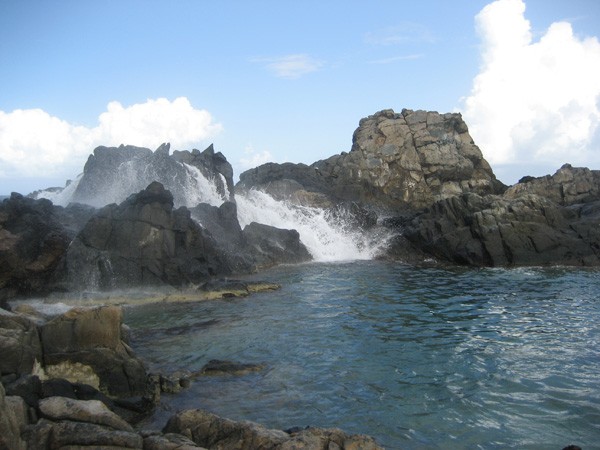 |
·
The "Antilla"
Shipwreck
The 400-foot "Antilla" is one of the
Caribbean's largest shipwrecks and also one of its most
popular attractions. It was sunk during World War II and is
home to many kinds of exotic sea life.
·
Natural Bridge
The Natural Bridge and Baby Natural
Bridge are two stunning rock and coral formations. The
Natural Bridge fell into the sea in 2005 but the smaller
bridge remains a must-see island highlight.
·
Arikok
National Park
Aruba's National Park is home to
spectacular cacti, flora and fauna that flourish in this
desert-like environment. Along with the wind-swept divi-divi
trees, wild donkeys and iguanas also live here.
·
Beaches
Aruba is famous for gorgeous,
palm-tree lined white sandy beaches which are home to calm
clear waters, making them perfect locations for swimming,
snorkeling and sunbathing. Some
cruise people simply head for the nearest luxury hotel and spend the
day in total relaxation on their beach.
·
Butterfly Farm
Aruba's Butterfly Farm is home to
hundreds of exotic butterflies who fly freely within large
meshed enclosures. Witness all stages of their life cycle
and with guidance, handle these tiny creatures.
|
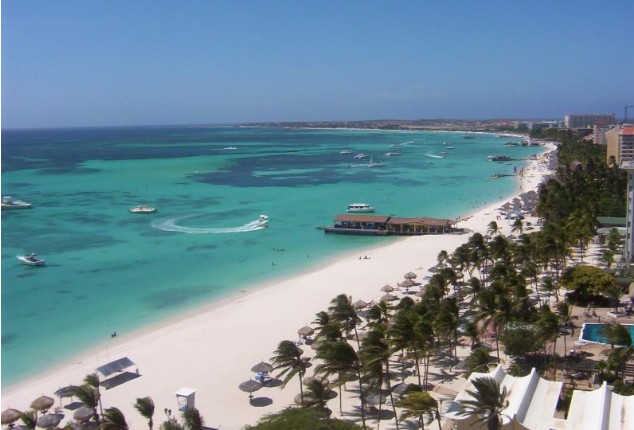 |
|
|
|
|
Panama Canal Registration
Information:
Marla's Note:
As this is not your typical SSQQ Travel Group
Cruise, there need to be some
changes to our usual Travel Rules.
1. There is no "Group".
All reservations will be made
through Marla as individual
bookings. Marla does
have the ability to link everyone together for dining
purposes.
2. Unfortunately, you must either
have a roommate to share your cabin or pay the single
occupancy rate. Marla can advertise for a
roommate, but cannot guarantee one.
3. Full Deposit will be due at time
of reservation.
Pricing as follows:
Inside:
$1964
per person double occupancy
(it was $2065)
Oceanview: $2364
per person double occupancy
(it was $2465)
Balcony: $2464
per person double occupancy
(it was $2765)
For questions, Contact Marla
Archer at
marla@ssqq.com
|
|